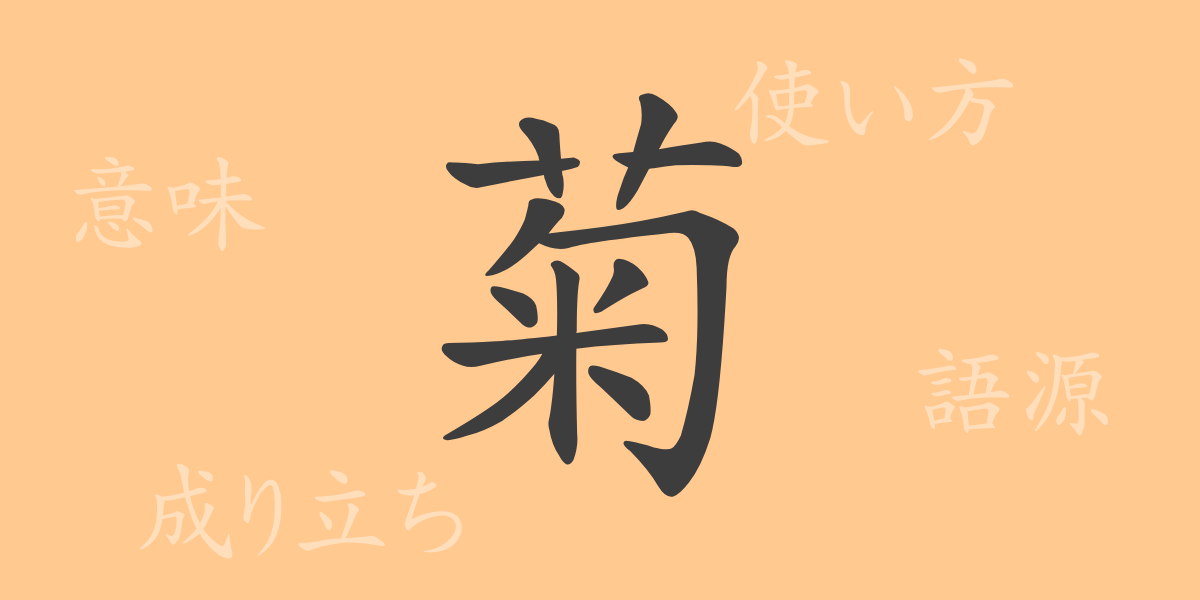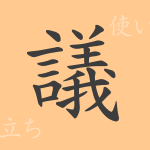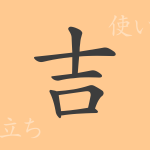When it comes to flowers that symbolize autumn in Japan, many might think of chrysanthemums (菊, kiku). Loved since ancient times and deeply embedded in various cultures and traditions, this flower is not only beautiful but also holds profound meanings. This article focuses on the common-use kanji “菊” (kiku), exploring its origins, meanings, usage, readings, stroke count, and radicals. Let’s delve into various aspects of “菊” (kiku) and experience a part of Japanese culture through it.
Origin of the Kanji “菊” (語源)
The origin of “菊” (kiku) dates back to ancient China. The first appearance of the character “菊” (kiku) is in the classic literature “Shi Jing” (詩経, Shijing). The character is composed of the grass radical “艸” (くさかんむり, kusakanmuri) combined with “勹” (つつむ, tsutsumu), meaning “to wrap.” This symbolizes the opening of the chrysanthemum flower, representing the overlapping petals characteristic of chrysanthemums.
Meaning and Usage of “菊” (kiku)
Chrysanthemums (菊, kiku) have been symbols of longevity and immortality. They are also known as an autumn season word (季語, kigo) in Japanese poetry, and there is a tradition of decorating with chrysanthemums during the Chrysanthemum Festival (重陽の節句, Chōyō no Sekku). Additionally, “菊” (kiku) signifies purity and nobility, and it is used as the imperial emblem, reflecting its special significance.
Reading, Stroke Count, and Radical of “菊” (kiku)
The kanji “菊” (kiku) is commonly seen in daily life. Let’s review its basic information.
- Reading: The on-yomi (Chinese reading) is “キク” (kiku); there is no kun-yomi (Japanese reading).
- Stroke count: 11 strokes.
- Radical: The radical is “艸” (くさかんむり, kusakanmuri), meaning grass.
Idioms, Proverbs, and Expressions Using “菊” (kiku)
There are various idioms, proverbs, and expressions that include “菊” (kiku). Here are some examples:
- 菊花賞 (きっかしょう, Kikka-shō): One of the GI races organized by the Japan Racing Association.
- 菊門 (きくもん, kikumon): The imperial emblem of chrysanthemums.
- 閉菊 (へいぎく, heigiku): The closing of chrysanthemum flowers, metaphorically used to describe seclusion or retreat from society.
- 石に菊 (いしにきく, ishi ni kiku): Describing something modest yet pure and beautiful, like a chrysanthemum blooming naturally on a rock.
Summary on “菊” (kiku)
Chrysanthemums (菊, kiku) are flowers that hold not only beauty but also deep meanings and traditions. In Japan, they are cherished as symbols of the season and the imperial family. Through this article, we hope you have gained a deeper understanding of the history and culture embedded in the kanji “菊” (kiku). Every time you see a chrysanthemum, remember the rich background it carries.

























